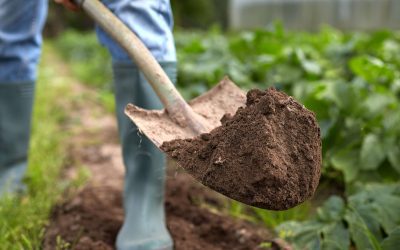Farmers or those married to a farmer do not need a specific farming divorce lawyer but they do need a good lawyer with experience of the particular issues that arise during a farming divorce. Gepp Solicitors have been serving the rural community of Essex and beyond for over 250 years.
The landmark divorce case White v White [2000] which was that of a farming family, remains one which fundamentally changed the landscape in which lawyers operate, how we advise our clients and what the courts order.
Mr and Mrs White were married for over 30 years. They had 3 children together and throughout the marriage they carried on a dairy farming partnership in Somerset. Mrs White was an active partner in the farming business as well as meeting the needs of the three children. They both came from farming backgrounds and made a success of their business.
White v White introduced a starting point that "equity should be departed from only if and, to the extent that, there is good reason for doing so".
Mr and Mrs White both contributed a more or less equal amount of capital, with a combined net wealth at trial at approximately £4.5m. The matter went to the House of Lords (now called the Supreme Court ) with appeals from both parties but the House of Lords upheld the division of assets as decided by the Court of Appeal of 43% to Mrs White and 57% to Mr White.
It was summarised by Lord Nicholls that "There should be no bias in favour of the money-earner and against the home-maker and the child-carer”.
Often in farming divorces it is a the case that the farm, either in whole or in part, has been in one party's family for generations and often has been gifted to or inherited by a party before or during the marriage. It is therefore particularly important to consider the concept of matrimonial and non-matrimonial property and when to depart from equal split of the assets during such cases.
During the case of White v White, which we have relied on over the last 20 years, the House of Lords urged 'fairness' above all else and recognised that an equal division of assets would not result in fairness in all cases.
This means that where there is inherited wealth or property acquired before the marriage from an external source this could dictate a move away from equality. Where the property still exists, the spouse to whom it was given should be allowed to keep it meaning that the other spouse has a weaker claim to such property than they may have regarding matrimonial property.
It is common that the courts will do all that they can to avoid the forced sale of a farm, particularly when it is profitable, has been in one parties family for generations or was gifted/inherited with an expectation that it would be retained for future generations. Sadly, it is not always possible to meet both parties' needs without a sale.
Farming divorces have been described as “excruciatingly difficult” (Mr Justice Munby in P v P 2004) and “notoriously difficult to resolve” (Mr Justice Wilson in R v R 2004). Whilst the case of White v White advocates 'fairness' above all else, the reality is that neither Mr nor Mrs White left the marriage feeling that fairness in the courts had been achieved and this is often the sad reality in cases such as these.
The team which you instruct to deal with your matter is crucial with farming divorces as careful thought and strategic planning is required. It is not simply just the end result that matters but the future as well.
If you have any queries as to divorce generally or farming divorces, a member of our family law team will be happy to assist you by offering an initial free consultation.
All of our family lawyers are members of Resolution and will be happy to assist you with any Family Law issues. For a free initial consultation please telephone on 01245 228106 or email Family@gepp.co.uk
This is not legal advice; it is intended to provide information of general interest about current legal issues.



